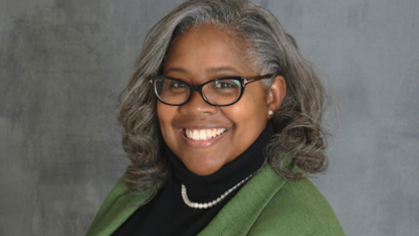By Mary Beth Ali, LCSW, C-ASWCM, Teaching Instructor and Field Education Coordinator
As folks enjoy the remaining summer months, I invite you to pause your relaxation and carefree planning to reflect on your power as a registered voter.
The 26th of August is Women’s Equality Day. Certified in 1971 by Congress, the day honors the passage of the 19th Amendment (1920) which legalized a woman’s right to vote. This more than forty-five-year arduous journey was sustained by local grassroots momentum, including hunger strikes, incarceration, lectures, picketing, and protest rallies battling decades-long male-only voting laws. Individual Suffragette State Act passages gained momentum at the turn of the 20th century, which paved the way for the 19th Amendment.
After the Amendment was passed, women of color remained excluded from taking part in their legal right to cast a ballot, denying them their equal right to representation. Their arduous journey to attain this right would extend more than four decades, battling the two-fold barrier of color and gender. Black females had to develop their own venue to mobilize while living in a segregated United States, limiting Black females’ access to each other. The National Council of Negro Women, founded in 1935, was one of the first national venues to unify and represent Black women in America. While Black males received the right to vote in 1870 under the 15th Amendment and Native Americans received the right to vote in 1924 with the Indian Citizen Act, it was not until the 1965 Voting Rights Act made it illegal for polling venues to require pre-clearance measures, routinely imposed on individuals of color, especially Black women.
With the Equal Rights Amendment (ERA) pending in Congress (then and now), New York congressional representative Bella Abzug sought to solidify representation for women on a national level. In 1971, she crafted legislation to promote Women’s Equality Day, which honors women’s right to representation through voting. As I pen this commentary, I feel compelled to highlight recent events involving trailblazing women of color who sought out representation and thus immersed themselves in public service.
First is the life and sudden death of the New Jersey Lieutenant Governor, Sheila Oliver, a Newark native who rose through the political ranks on her merit and political platforms such as Equal Pay for Equal Work, Stronger and Fairer, and Forward, standing for the oppressed and disenfranchised.
Lieutenant Governor Oliver battled through multilevel ranks in New Jersey politics in her lifelong quest for equal representation for all persons. Her legacy as the only woman of color elected to New Jersey statewide office plowed a pathway for women of color to enter New Jersey politics.
Her legacy as an activist expanded beyond jurisdictional communities, motivating individuals to use their voting power to stand for the voiceless and disenfranchised. Consider one such woman, Betty, who describes herself as a 72-year-old Black woman who saw underrepresentation and oppression two-fold. She used her power of the vote to make changes. Betty and her family members were expected to register to vote at eighteen; knowing the deadly oppressive history people of color experienced for the sake of voting, Betty embraced this right with passion.
As she matured, she went through the motions of voting while subconsciously noting the underrepresentation of herself and her community surrounding the ballot choices offered. In addition to the ballot choices, Caucasian poll workers monopolized the polling positions, which heightened Betty’s feeling of underrepresentation. She scheduled a meeting with her New Jersey State Senator to discuss her observations of the underrepresentation of Black women in the polling venues across northern New Jersey. Betty was so empowered after that meeting that she applied and began her career as a poll worker throughout New Jersey, gaining experience as a clerk, equipment operator, inspector, and precinct supervisor. Betty now supervises several polling locations throughout New Jersey, yet she still faces obstacles from fellow poll workers since she is a Black woman in command of polling locations. She proudly reminds her poll colleagues that she earned her rank as supervisor, leading with accessibility and respect for each registered voter’s right to vote.
Lieutenant Governor Oliver and my dear friend Betty are pioneers in the 21st century, living a life of service and standing up for oppressed, voiceless, and marginalized individuals.
I urge you to please ensure you are registered to vote, and the next time you find yourself at the ballot box, cast your ballot with intention, deliberation, and—most of all—representation. Non-partisan voting rights groups such as the League of Women Voters, the ACLU (Americans for Civil Liberties Union) of New Jersey, and the Fair Elections Center offer multilingual digital platforms offering non-partisan information on local and national elections. Spend some on-line time exploring the names on your local ballot to ensure the vote you cast does represent you and those you care about. Otherwise, the conversation on voting rights for women will remain underrepresented and unequal for the next 364 days.
References
Center for American Women and Politics – August 2014. Teach A Girl to Lead, Women’s Suffrage in the U.S. by State. https://tag.rutgers.edu/wp-content/uploads/2014/05/suffrage-by-state.pdf
Equal Rights Amendment. Equal Rights Amendment
Fair Elections Center. https://www.fairelectionscenter.org/
League of Women Voters, https://www.lwv.org/
League of Women Voters, Women’s Inequality Day. Women’s Inequality Day | League of Women Voters (lwv.org)
Library of Congress, Indian Citizenship Act. Today in History - June 2 | Library of Congress (loc.gov)
National Archives, 15th Amendment to the U.S. Constitution: Voting Rights (1870). 15th Amendment to the U.S. Constitution: Voting Rights (1870) | National Archives
National Archives, 18th Amendment to the U.S. Constitution: Women’s Right to Vote (1920). https://www.archives.gov/milestone-documents/19th-amendment
National Archives, Voting Rights Act, 1965. Voting Rights Act (1965) | National Archives
National Council of Negro Women, Inc. https://ncnw.org/
National Women’s History Alliance. Women’s Equality Day - National Women’s History Alliance (nationalwomenshistoryalliance.org)
New Jersey Voter Information Portal, Department of State, Division of Elections. NJ DOS - Division of Elections - Register to Vote! (state.nj.us)
Official Site of The State of New Jersey, Lieutenant Governor Shelia Oliver. Office of the Governor | Lt. Governor Sheila Oliver (nj.gov)
Official Site of The State of New Jersey, New Jersey Voter Information Portal, Poll Workers - New Jersey citizens needed! NJ DOS - Division of Elections - Poll Worker Application
This story was created in partnership with Rutgers School of Social Work's Inclusion, Intersectionality, Diversity, Equity, and Advancement (IIDEA) Committee in support of our commitment to diversity, equity, and inclusion.



